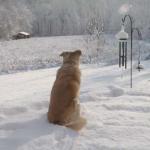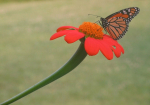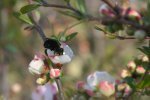Ann E. Michael's Blog, page 35
February 27, 2019
Anticipation
February’s coming to a close, and the forecast indicates a chance of snow soon–but the gardener feels stirrings of approaching spring.
Time to buy seeds, order supplies, plan the garden. Time to mow the meadow before the ground-nesting birds get started on their spring dwellings. Last night the temperatures went well below freezing, but the winterhazel has bloomed. Snowdrops push up from leaf litter: a glimmer of white petals still held close to the stem. Waiting for a string of warm days to open up for the early pollinators.
[image error]
Photo by Pixabay on Pexels.com
Indeed, the days lengthen at last. Next week marks Spring Break for my college, and with a little more flexible time available, I hope to pin down my garden plans. Each year, I try to incorporate something innovative in the small patch of (mostly) vegetables. This year, I’m tempted to try short-season artichokes.
Thinking about the garden energizes me, gets my creative side jumping. It’s partly the anticipation–will this plant emerge, grow, thrive, fruit? Will voles and insects and viruses attack it? Will the weather cooperate? For example, I’m glad I did not plant potatoes last year–the weather was too wet. Should I take a chance on potatoes this year? (Oh, those tender new spuds lifted from the warm soil in August…)
And tomatoes! So many varieties from which to choose.
[image error]
Bounty (our own, in 2015)
Anticipation feels different from expectation, though the two are related. For me, at least, the connotation of the first is more open-ended. Anything can happen, though let’s hope what happens is good. Expectation seems more results-oriented. I am not a results-oriented gardener; I like surprises, I appreciate the education I get even from failures.
Come to think of it, I could describe myself that way as a writer or poet, too: not results-oriented, more intrigued by the things I learn when I work at the writing.
Even when the results do not pan out, even when I finally must give up on a poem that is not working, I learn a great deal about where and why a particular approach fails. This is why writing requires practice, patience, and time to analyze and reflect on what those “results” tell the writer.
Do what works, then push the envelope.
Hmmmm…artichokes in Pennsylvania….
[image error]
artichoke in bloom : Pexels.com
February 20, 2019
On revision (again)
[image error]I am going to go out on a limb here and make a blanket statement: Revision should be every writer’s middle name.
I tell this to my Comp-Rhet introduction to academic writing students all the time, but they have difficulty figuring out how to revise effectively. There are good tactics out there, but they do not work for everyone; how a person thinks and learns and processes information varies considerably. Lately, I have been using a strategy I teach to students writing essays to revise my poems. I ask myself: how is this poem organized? Is the structure working with or against the poem? Too predictable, or not predictable enough?
Just as in a well-wrought prose piece, a poem’s obvious and underlying structures matter a great deal in how well it “works” for a reader. It’s also an aspect of writing that people tend to overlook, so analysis of structure in the revision stage can be useful.
Another revision strategy I have been mulling over recently coincides closely with what Grant Clauser describes in this post, The Poem Is the Question. He writes:
I’ll scrounge around in the poem to try to find what it’s asking. If I figure out the question or the motivation in the poem, then I’m better equipped to solve its problems… Sometimes it helps to actually put a question in the poem–either as a crutch that you’ll eventually remove–or as a permanent part of the poem. A question is a pretty interesting part of speech in that it’s one of the few that almost always demands a response from the reader.
I have found myself going back to a draft and asking, “What got me going on this poem? Do I even recall? Is the impetus an interesting one? If not, can I change it?” Clauser suggests a more specific kind of investigation, and it’s one I have been employing today (snow and ice out there and the roads are lousy, so the campus is closed–hooray for a half day of unexpected free time).
Lesley Wheeler has also recently blogged about revising. She observes that the word revision, which places “emphasis on ‘looking anew’ doesn’t entirely capture” the process of late-project revision. She’s listening to her own words aloud as she revises…another approach that has worked for me.
Maybe the month of February calls to us as a quiet time of yin creativity, which is a way of looking at revision as an inwardly-focused energy–as opposed to marvelous bursts of creativity from inspiration or the much-vaunted Muse. The lunisolar calendar used for centuries in Asia calls February the first month of spring (立春 lìchūn)! I had better keep at the revising, therefore. Before I know it, yan energy will return with the start of the gardening season in eastern Pennsylvania.
February 10, 2019
Discomfort
It’s important, I think, to experience discomfort–it means I am facing a new task, a new perspective–that I’m learning something. I tell my students that if they are totally comfortable with the concepts in their coursework they are not learning anything yet. Education does not come without risk, whether the risks be physical, social, emotional, or intellectual. When we feel uneasy, it may mean we sense danger or sense the presence of someone manipulative, dishonest, or unkind. It may, however, mean we are simply “outside of our comfort zone.”
Tony Hoagland‘s poems offer examples of how we learn through leaving our familiar attitudes. Daisy Fried’s insightful 2011 commentary on his poem “The Change” notes the need for such uncomfortable moments. Poems Hoagland wrote as he headed toward his death from cancer at age 64 do not shy away from making the reader feel awkward, unhappy, or–in some cases–relieved, even glad. It can feel wrong to acknowledge relief as part of death. That recognition tends not to follow U.S. culture’s social norms.
I’m not claiming all good poems rile up discomfort; some poems offer joy or embrace a comforting openness; and, as readers bring their own differing experiences to the reading of a poem, the same poem that discomfits one person may appeal beautifully to another reader.
This post came about because I feel I have come to a period of discomfort in my work, and it troubles me but in a good way. I would rather feel discomfort with my writing than disengagement with it. Disengagement is writer’s block, which does not describe where I am at the moment. Instead, I feel rather as I did when I began to write and revise using formal patterns. My written expression up to that point had all been in free verse or prose, so adapting to villanelle or sonnet structure or sapphic meter seemed risky, difficult, “wrong.” Wrong for me, for the writer I believed I was, for the writing voice I had developed for 20 years.
And I was wrong about that, too! My initial discomfort aside, I learned so much about poetry, including about my own style, through the practice of formal verse. The wonderful online journal Mezzo Cammin (formalist poetry by women writers, edited by the amazing Kim Bridgford) has published several of my poems in the past. Now, two more of them! Please click here.
~
[image error]
Sarah Sentilles’ book Draw Your Weapons elicited discomfort in me but also marvelous connections (she and I have read many of the same authors). Her observations about art, violence, pain, and language weave in and through stories of a soldier-turned-artist and a WWII conscientious objector.
Between the development of these men’s stories, Sentilles cites research, philosophers, artists, and personal experiences and forces her reader to recognize how even the language we speak is complicit in accepting violence as a given rather than as something that human intention and action can change, if slowly.
I finished reading this book two weeks ago and am still mulling it over, returning to passages, marking some of her sources as “to-read” for myself.
It’s possible that Sentilles’ text in some way stirred up my discomfort with my own work.
And that would not be a bad thing. Getting out of the familiar is not only how learning happens; it’s how creativity happens.
January 31, 2019
Hear me out
It’s not a social norm–real listening. Despite the recognition that human beings are social animals that require communication, despite the recognition that “talk therapy” (which at its foundation employs active listening) and writing therapy can heal broken psyches, even though many studies over decades have demonstrated how relationships rely upon partners’ openness to listening–listening stays a bit unconventional.
So many people think listening is passive. No, it is an active verb. Bombarded with information from numerous sources, the processes of discerning what one should listen to get tattered and confused. Our brains want to chunk information, to ignore, to elide, to suppress and glean and separate the various threads so the mind can prioritize.
Listening is difficult.
~
[image error]
Not asphodel but Solomon’s seal, also a greeny flower
William Carlos Williams famously claims it’s difficult to get the news from poetry–and, in the same poem, he asks us (by way of Flossie, his wife) to listen:
…Hear me out.
Do not turn away.
I have learned much in my life
from books
and out of them
about love.
Death
is not the end of it.
There is a hierarchy
which can be attained,
I think,
in its service.
…
the mind
that must be cured
short of death’s
intervention,
and the will becomes again
a garden. The poem
is complex and the place made
in our lives
for the poem.
[I am not html-savvy enough to code the spacing of this poem on my blog, but you can find it here (p. 20) or here; the excerpts are from “Asphodel, That Greeny Flower.”]
~
Poetry : “A way of happening, a mouth.” It survives, says Auden, in his poem on the death of Yeats.
The mouth expresses the mind and also what we call the heart, the soul. To make a poem is an intentional act.
Is listening a subversive act? is compassion?
January 27, 2019
Remembering joy, redux
This weekend, I am trying to concentrate on poetry-wrestling, herding poems, culling and grooming and all that. So–less time to reflect on writing my own blog posts.
However! I follow many poets and writers, and one or two philosophy and science blogs, would like to direct my readers to two writers who responded to Mary Oliver’s recent death--both of these poets commented on Oliver’s reputation as a nature writer and a poet of “joy.” Reputation isn’t the same as analysis.
Here is Grant Clauser, wondering whether it will be possible for him to write gladness into his observations (which are quite keen and worth reading).
And here is Catherine Pierce, a poet much younger than I who admits to her own prejudices when deciding which poets to read–which poets are “worth the effort” of reading (ie, which writers teach us most about life and about poetry-writing).
The death of a beloved animal companion some years ago took me to Oliver then. And in the sorrow, I recalled the gladness of having that dog in my life.
“Nature poets” can be fierce, asserting the need for stewardship of our blue planet; poets who write happiness well understand–and convey–that pain and sorrow remain our companions in life. That does not mean a focus-on-the-positive Pollyanna attitude. No–to compose poems that show us we have every reason to love what we encounter takes bravery, because we so often fear what the world offers. To do so takes deep acknowledgment of suffering, not just a glancing nod, but compassion. The poet may not “behave well” in his or her own life but has the practiced gift of observation and enough craft to show the reader difficult perspectives.
Sometimes, gladness and optimism and beauty get obscured by experience and griefs. Next time that happens, maybe turn to poems?




All things bright & beautiful
January 19, 2019
Observations
My brother, whose avocation is science historian and whose papers I often proofread, has acquainted me with the 18th-c. comparative anatomist Johann Friedrich Blumenbach. As often occurs when one becomes attuned to new knowledge or focus, I suddenly seem to find Blumenbach’s name or theories “everywhere.” Mostly in books, of course, but also in a natural history museum where I came face to face with a trilobite that bore his name. I have also been reading Andrea Wulf’s book on Alexander Humboldt, The Invention of Nature; Blumenbach was one of Humboldt’s professors and influencers.
[image error]
calymene blumenbachii
Wulf’s book begins as a biography of Humboldt but closes with several chapters on others who were inspired by his work; she makes the claim that Humboldt’s ideas about the deep connectedness of everything on earth laid groundwork for environmentalists and the discipline of ecology. Indeed, Darwin, Thoreau, Marsh, Muir, and many others found his texts revelatory and transformative. His writing is supposedly poetic and emotional–he did not think the earth and its denizens deserved less than awe and appreciation. Even though his books are packed with measurements, comparisons, careful botanical descriptions, and minute observations of practically everything he encountered, he allows space for admiring the view. Or, so Wulf’s book says. Now, I suppose I shall have to do a bit of reading Humboldt!
~
Along these lines, the lines of the natural world’s connectedness and relationships–ourselves among these, despite our frequent destruction of them–I find myself thinking of the recent death of poet Mary Oliver. I so admire the work and the woman, or what little I knew of her from a few appearances and through friends who studied with her. My social media feed has been alive with tributes, postings of her poems, and some critique about her standing as an American poet, as if that would matter to her (I doubt it would).
I can just make note that her poems have encouraged me to continue to write about nature, even when I’ve been told nature poets are unfashionable, uninteresting, or unnecessary. Her work taught me how to observe closely, like Aristotle at the tidal pools or Haeckel peering at radiolaria. First notice, listen; then describe, then try to obtain more information, and all the while percolate what experience has created within the observer herself. Maybe nothing earth-shattering comes of the process, but sometimes there’s a poem…
Here’s one of Oliver’s early poems (from Twelve Moons, 1979), one readers are less likely to find in all of the tributes to her but which offers a sense of how well-observed–for all their ‘simplicity’–her poems are.
Buck Moon–from the Field Guide to Insects
Eighty-eight thousand six-hundred different species
in North America. In the trees, the grasses
around us. Maybe more, maybe
several million on each acre of earth. This one
as well as any other. Where you are standing
at dusk. Where the moon
appears to be climbing the eastern sky. Where the wind
seems to be traveling through the trees, and the frogs
are content in their black ponds or else
why do they sing? Where you feel
a power that is not yours but flows
into you like a river. Where you lie down and breathe
the sweet honey of the grass and count
the stars; where you fall asleep listening
to the simple chords repeated, repeated.
Where, resting, you feel
the perfection, the rising, the happiness
of their dark wings.
Her poems are not metaphysical by any means, but Oliver is avowedly spiritual, which is not a fashionable thing. I am not spiritual, but I have always respected that in her. May she rest in the perfection and the happiness of those dark wings.
[image error]http://animals.howstuffworks.com/insects/question733.htm
January 12, 2019
Biodiversity & storytelling
As I have mentioned before in many previous posts, telling stories matters to humans. It’s the best way to get a person’s attention: if a writer wants to bring a fact, claim, event, person, or history to light, the best way to reach a wide audience requires spinning a good story about it. I recently finished reading a book about so-called living fossils, including bacteria and worms (not my favorite subjects), because the author’s enthusiasm for his subject was scaffolded onto a story of world-travel and time-travel. In the process of learning about coelacanths, horseshoe crabs, and echidnas, Richard Fortey also makes an impassioned plea for biodiversity–and storytelling.
[image error]
“…I am not in sympathy with the idea that what matters about a species is how we humans react to it, which seems allied to a view that nature is only validated by observation from this particular hominid…We don’t reckon the worth of a species by the “damage” its extinction would do to other ecosystems. We cannot rank the products of more than 3 billion years of evolution in utilitarian lists. The richness of the biological world is the most wonderful feature of the biosphere, and every story is worth telling no matter how humble, or indeed insular, is the the organism concerned.” [my italics]
–Richard Fortey, paleontologist and expert on trilobites, in his book Horseshoe Crabs and Velvet Worms: The Story of the Animals and Plants that Time Has Left Behind. https://www.penguinrandomhouse.com/books/54786/horseshoe-crabs-and-velvet-worms-by-richard-fortey/9780307275530/
The lyric, the epic, the myth, the story written in the genome or the geology or the great vast cosmos–all of the things we know contain mysteries–intrigue us when we hear a narrative. Who knew that microbes and bacteria and alga have stories? They cannot tell their own unless “the storytelling animal” interprets them, raising their stature and importance in the eyes of “particular hominids.” In 1971, Dr. Seuss invented The Lorax for such a purpose.
It takes all kinds of people to tell good stories. Keep reading!
January 8, 2019
Creative publishing
Poetry and publishing: two topics that seem diametrically opposed, if you look at them under the perspective that’s the norm in the USA—that of business, capitalism, popular culture. Shake off that norm, however, and publishing can be re-imagined as aural/oral, visual, textual, cinematic, digital, interactive…who knows?
When a reader begins to deepen her understanding of creative literature, she will also find it necessary to widen the concept of publishing. Some folks say this is a new world. Or they’ll claim things were better in the old days. Curmudgeons and prejudices abound.
In my lifetime, I have observed and been part of significant and constant changes in what constitutes publishing, from Linotype to Huffpost. Recently, I participated on a panel of poets talking to students who have just begun an MFA program. The panel was a discussion, but it jogged reflections on the process of getting poetry to an audience. So here’s a compressed version of getting poems published, as I experienced it.
~~
I began to submit my work in the very early 1980s to the indie-publishing journals which were extant at the time: photocopied, stapled zines with print runs of 300, or maybe just 150. I was new at writing and aware that my work wasn’t ready for Ploughshares or Poetry and the so-called top-tier journals I purchased and read carefully and tried to learn from.
As a 20-year-old woman, I was not exactly full of self-esteem. Why did I submit at all, when I knew my poems were juvenilia? Well, I know that now…at the time, let’s say I knew they weren’t up to the work of Elizabeth Bishop or Audre Lorde. The reason was mentorship. I had two good friends who encouraged me to send work out but to be realistic. To read the journal first and analyze my work in comparison to what appeared in the magazine. Good advice—and let me tell you how much harder that was in the years before the internet! As I lived in New York and Brooklyn and Philadelphia, however, and it was the 80s, there were good independent bookstores to browse, and good libraries. And there was Dustbooks.
So analysis was crucial, not just for deciding where to submit but to learn how to be a better writer. It was important to compare, to take apart, to hear meter, to recognize rhythm and consonance and the fabulous image and the fresh metaphor, to say how does that writer achieve what she does and can I learn it? Without slavish copying?
Damned difficult. But thanks to publishers, at least the materials were available. If we hadn’t had poetry publishers, it would have been even harder to learn the craft; and I’m not the sort of sui generis writer who just creates out of genius. I had to study, practice, revise, and learn the hard way. Alas.
[image error]
In the later 80s, I started doing some editing and publishing of other people’s work. My dear friend, David Dunn, and I had a small press that put out two broadsides and four chapbooks. Taught me a great deal. I helped to edit a Xerox-zine in Philadelphia in the 80s. Meanwhile, I kept getting work into small press journals nationwide, mostly these photocopied deals with tiny readerships; but the minor successes kept me going. After awhile I had enough hubris to try the better-recognized journals, with some success. This is how it works: persistence, but not bull-headed, blind persistence. One persists through the learning process; revises, practices, finds trustworthy people for feedback.
My sister, my spouse, and I all have worked in the publishing business-as-business, in how-to and B2B magazines; I was a typographer, proofreader, copyeditor, writer, indexer. All of that background was valuable in its way and never kept me from pursuing creative work. So I did eventually go for my MFA, in my 40s, and I got chapbooks and a collection published at long last in spite of—oh, you know—life.
Because I feel that poetry needs audience, I was early to jump on the online publishing wagon, despite colleagues who warned that it wasn’t really as acceptable a venue as academically-affiliated print journals. Nonetheless I’ve found myself enthralled by online journals, by audio-poems, moving-poems (video), podcasts, blogs. I’ve watched well-respected magazines migrate to the internet. And there are problems with online publishing. I know about them, wrestle with them, yeah—keeps life interesting.
My route has not been the academic route, although I work at a college today; I am more of an outlier. Poets and writers can be nurses, doctors, mechanics, or landscapers, grandparents, people with disabilities, insurance industry managers, post office workers, tutors. Each of us discovers her own process for writing and for getting the poems into the world. Mine is pokey and slow and frequently interrupted, and my next long collection won’t appear until 2021, nine years after Water-Rites, my first. But I feel satisfied with my publishing record, such as it is. People do read my work, which is kind of the entire point of writing, no?
When everything is easy and there’s no chance of failure, life is boring. Writing creatively means taking risks, creating tension. Publishing creatively requires the same things. Risks, imagination, persistence, curiosity, analysis and a willingness to be open-minded. Fun pursuits, but not always easy ones.
January 2, 2019
Marvelous anomalies
“Human consciousness has at least as great an impact on the planet as any force of nature, yet its existence is in doubt because science does not know how to describe it.” —Marilynne Robinson
~
One of the things I most enjoy when reading Marilynne Robinson’s essays is her earnest yet delighted devotion to the preciousness of being a human on the Earth. “The sheer plenitude of things a mortal encounters is a marvel in itself,” she writes, and her prose illustrates how all that she encounters deserves attention and compassion. Humanity, in particular, is a marvelous anomaly (“What a piece of work…”) which she lovingly defends while noting our “propensity to error” leads us into great evils but also to the kind of wide-latitude indeterminancy within which “we construct our minds and our civilizations.”
With clear logic and complex ideas and sentences, Robinson dismantles the logic that dehumanizes us. She demonstrates “that much influential thought is fundamentally incoherent” (this thought includes philosophy, psychology, and scientific theory) but nonetheless informs our norms, our behaviors, the tenor of our beliefs and our entire lives. Too often we are reflexive rather than reflective. Too often we dismiss feelings as irrational, when they originate in our bodies and minds and often work to alter what we regard as facts, thus biasing our perspectives. Emotions are part of our beings as humans. So are questions, especially the unanswerable questions.
Robinson says science “exploits accidents and relishes surprise”–something that poetry does, too (my aside, not hers, though I doubt she would disagree). But scientific method does not “provide an all-sufficient test for the reality of everything.” By implication, the biblical texts and so-called creation myths offer people a method of grasping the awesome that science cannot answer for and may never yield to, as each marvel reveals new mysteries and new questions.
We cannot say that the stars were arrayed to instruct us in the glory of God, to dispose our minds to wonder, to make us feel our finitude within an order of Being for which millennia are more transient than breath. This, for all we know, is the accidental consequence of the accidental emergence of the constellations, the fortuitous interaction of our unfathomable brains and senses with dazzling reality…We must step back and acknowledge that any accounts of the initial moments that make the event seem straightforward and comprehensible are deeply wrong. Nothing else could be true, considering what it has yielded.
I have not mentioned the words theology or philosophy in conjunction with Robinson, because so many readers would be less inclined to read her work. She’s not afraid to use those words and to examine, often rigorously, what they have meant to societies. Don’t be put off. In the final chapter of her book What Are We Doing Here?, Robinson writes about slander. It’s a short essay I wish all of us would read and think about, especially relevant to our current moment.
[image error]“Syntax” by Steve Tobin. Copper, bronze.
December 21, 2018
Breaking, breathing
For now, I will be taking a break, putting on the brakes, pausing for a breather. Briefly, though! Blogging has been not just a good discipline for writing practice but also for thinking practice. It has offered me a place to “bookmark” books that matter to me and to reflect on my teaching, my environment, my garden, and on The Big Stuff–consciousness, values, aesthetics, culture.
Urged along by other poetry bloggers (see Poetry Bloggers), I have posted 60 times in 2018. I felt quite disciplined about that feat until I looked at my WordPress statistics and learned that, for example, in 2014, I wrote 74 posts. This year I was no more or less active than usual (say the statistics). My average number of posts per year over the decade is pretty close to 60. Respectable enough–there are other things to do.
The college semester has closed. We are now “on break.” And I want to take advantage of the gap by making a break with our family tradition, just this once, and to relish the pause my job contains when the students are off campus. I’m especially happy to be breaking bread with Best Beloveds this holiday season. Before the year closes, I plan to enjoy long breaths in high altitudes and to look at the Milky Way.
May your breaks and breaths be of the best and most nourishing kinds.
[image error]Dave Leiker photo



